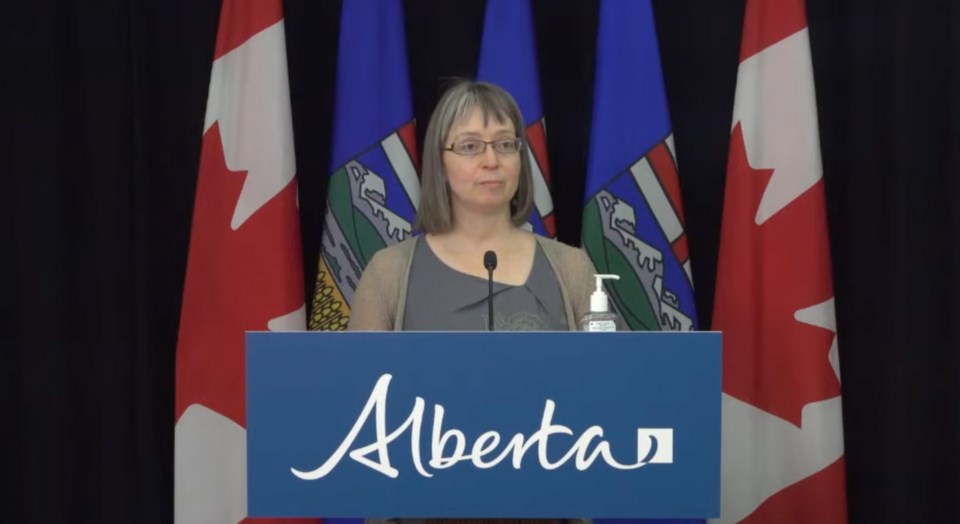Health Minister Jason Copping and Dr. Deena Hinshaw provided more information today about the COVID-19 situation in Alberta.
The province updated its COVID-19 data online yesterday.
Copping said that increasing lab-confirmed PCR test positivity and increasing wastewater indicators mean transmission of the virus and hospitalizations are expected to increase over the coming weeks.
During the past week, the confirmed positivity rate was between 24 and 32 per cent each day. There were an average of over four deaths each day, said Hinshaw.
"These deaths and our leading indicators remind us that COVID-19 is still very much with us. Transitioning to an endemic state does not mean the virus has disappeared,” she said.
She said there are currently no treatments for COVID-19 that are an adequate replacement for vaccination.
Rapid tests can be used three times a week as a screening tool as an extra level of caution to detect early infection, Hinshaw said.
“We need to make decisions that best fit our risk factors, risk tolerance and comfort level. Mask use in crowded public spaces is a very prudent measure for all of us to take right now.”
Those at higher risk of severe outcomes should consider outdoor social visits or extra protection in public, Hinshaw added.
Copping said that some protective measures remain in place. Masks are required in continuing and acute care, and on public transit.
Isolation is mandatory for those who are symptomatic or test positive for COVID-19, he said.
Along with the online update on April 6, the province announced it plans to expand fourth dose COVID-19 vaccine eligibility.
Starting April 12, people 70 and older will be eligible to receive a fourth dose of COVID-19 vaccine, as will First Nations, Métis and Inuit people 65 and older, and all seniors in congregate care.
This is in line with a recent recommendation from the National Advisory Committee on Immunization (NACI).
Eligible individuals can book their fourth dose if five months or more have passed since their third dose.
The province also announced it will be receiving doses of Novavax’s Nuvaxovid vaccine, starting April 12.
Nuvaxovid is a non-mRNA vaccine approved for those 18 and older. Due to limited supply, appointments for this vaccine can be booked by calling 811 only.
Also starting April 12, children aged six to 11 will also be permitted to receive the Moderna vaccine. This is in line with recent recommendations from NACI.
While strongly recommending preventative steps such as vaccination, the province is also expanding access to the antiviral drug Paxlovid.
Effective April 6, eligibility is expanded to include First Nations, Métis and Inuit people 45 and older who are unvaccinated, or have received only one dose of vaccine, and individuals living in long-term care and designated supportive living settings, regardless of vaccination status.
This treatment is available for patients who have a lab-confirmed COVID-19 infection if they can receive the treatment within five days of symptom onset.
“I encourage everyone to get vaccinated with every dose you’re eligible for and to stay home if you’re feeling unwell,” said Copping.




